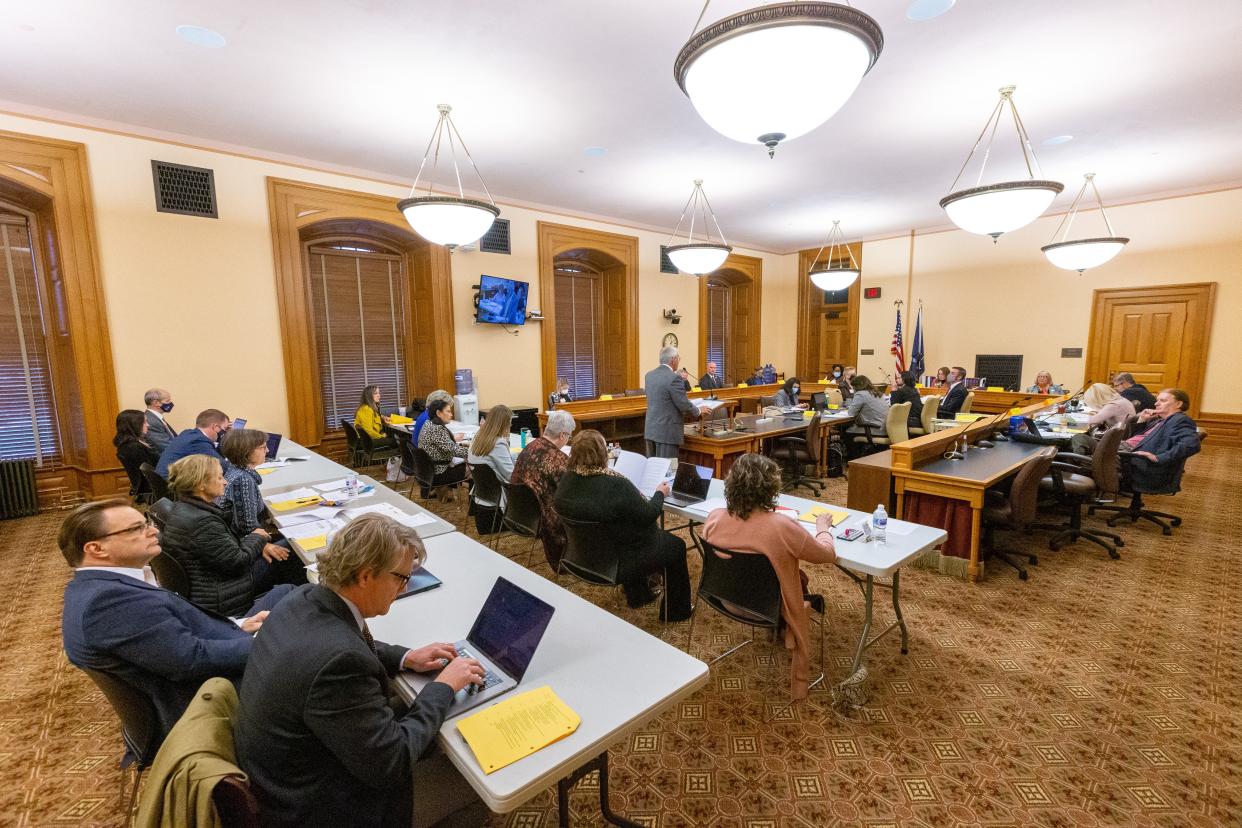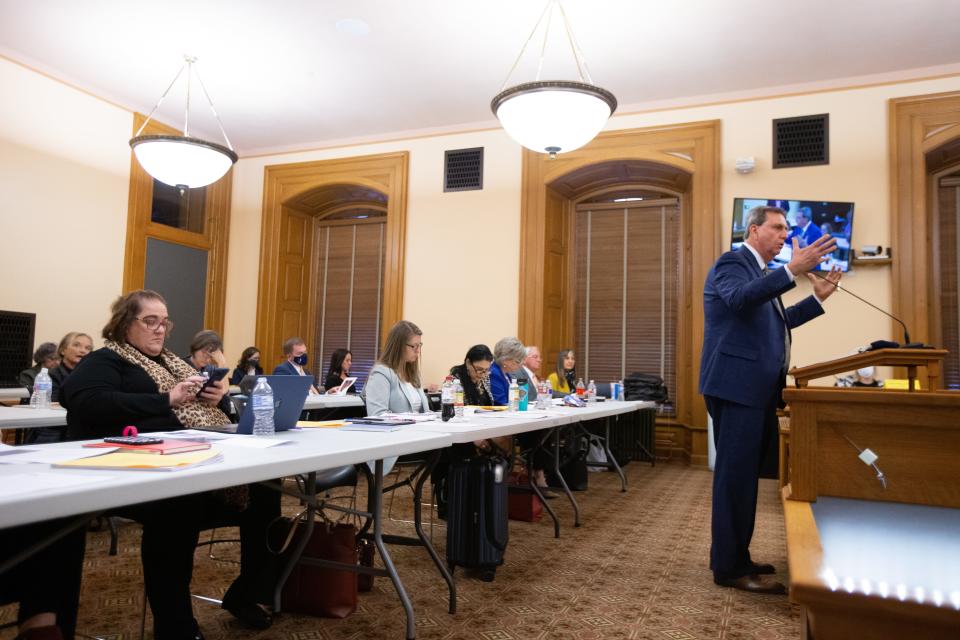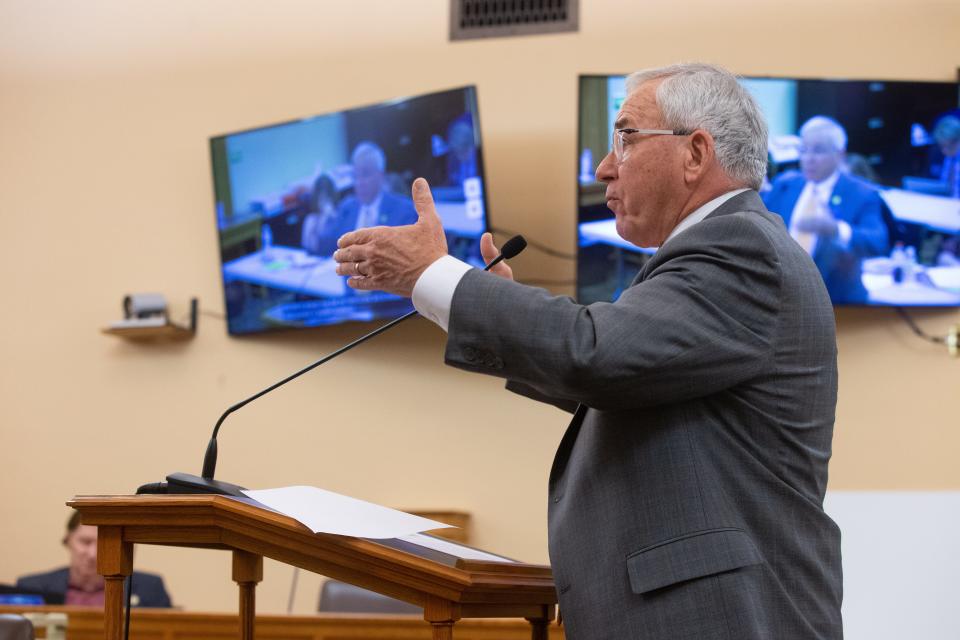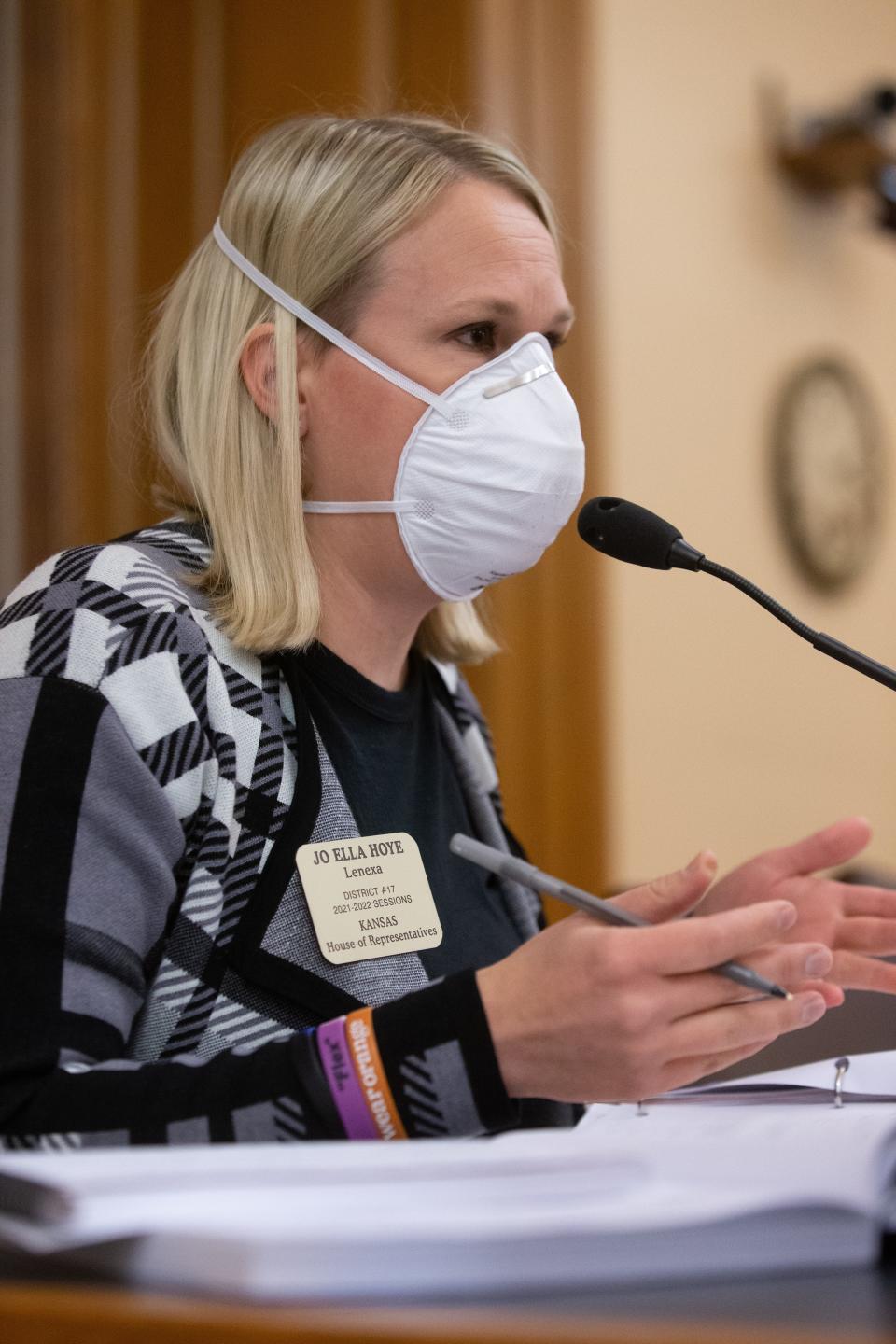Legislators, state officials spar over achievement in Kansas schools amid COVID pandemic, funding debates

- Oops!Something went wrong.Please try again later.
Lawmakers say a deep dive on student achievement in Kansas schools is needed, with the dialogue likely to have a substantial effect on the policy choices of the GOP-controlled legislators.
The formation of the Special Committee on Education, which met for the first time Tuesday, is a sign that long-standing questions over how many Kansas students are performing as expected — and whether those figures are acceptable in the context of the COVID-19 pandemic and increased investment in the classroom.
Concerns from Republican legislators about the direction of public schools are nothing new — lawmakers signaled their frustration with the status quo during a wide ranging debate on school choice last session.
It comes after years of funding increases mandates in the Gannon v. Kansas decision, where the Kansas Supreme Court ruled funding strategies embraced by Gov. Sam Brownback and the legislature after years of budget cuts were not adequate or equitable, two provisions that must be satisfied under the state constitution.
More: Kansas assessment scores show post-pandemic dip in academic achievement
After years of fits and starts, the court ruled in 2019 that lawmakers were coming into line with the ruling's provisions and legislators maintained that commitment in a budget passed this year, though the state will not become fully compliant until 2023.
That didn't stop conservatives from chafing at the court-imposed directives, and has prompted questions as to whether the state is getting what it is paying for.
"The state has substantially complied with the court’s mandate," said Rep. Kristey Williams, R-Augusta, and chair of the special committee. "Now over two years later and 11 years since the Gannon lawsuit was filed and the addition of billions of new state dollars … it begs the questions how are we doing today."
Pandemic stymies student attainment in Kansas, nation

The funding, which amounts to $4.9 billion annually in state aid, has had impacts on Kansas schools, hit hard by budget cuts during the Brownback Administration.
Craig Neuenswander, deputy commission for the Kansas State Department of Education Division of Fiscal and Administrative Services, noted schools have hired almost 1,200 teachers, over 390 counselors and social workers and 112 administrators since 2016.
"Once we started putting more money back in the grocery account we could start eating healthier and hiring more teachers," said Brad Neuenswander, deputy commissioner of KSDE's Division of Learning Services.
The state's graduation rate has increased in recent years, as well as gains among subgroups, including low-income students and English language learners.
But other key metrics have stalled or even declined. Scores on the ACT have largely flatlined in the last five years, while scores on the National Association on Education Procurement Exam, which measures performance every other year for students in three grades, have followed a similar trajectory for both fourth- and eighth-graders.
On state assessments, the number of students performing in the top two achievement categories in math and English Language Arts, which are deemed by the state to signal college readiness, have dipped in recent years.
In Hutchinson Unified School District 308, for instance, 51% fourth-graders in 2015 were in the top two performance categories in English Language Arts; six years later, when those students were in 10th grade, only 19% met those same benchmarks.
Schools say more context is needed. Kansas sets the standard for proficiency higher than virtually every other state in the country, so much so that students can be displaying basic proficiency but can be considered college ready when taking the ACT.
And more students began taking the ACT beginning in 2020, following a law which allows pupils to take the college entrance exam on the state's dime — though Republicans say the trends date back further.
"It is not necessarily the pandemic or more students taking the test," said Sen. Renee Erickson, R-Wichita.
Brad Neuenswander noted that between 2000 and 2010, achievement levels went up. But in the ensuing years, those levels dipped by basically any measure.
"It doesn’t matter if you use the old assessment or the new assessment, no matter how you determine proficiency we’ve been going down since 2010," he said.
Those declines began leveling off in the latter part of the decade, he said — until COVID-19 came.
The pandemic has had a seismic effect on achievement in Kansas and across the nation. Brad Neuenswander added they were expecting funding increases to pay off with a rise in assessment scores in 2020, but the tests were cancelled due to the pandemic.
"2019 we were leveling out. In 2020, the pandemic hits and 2021, you can look at anything and they say don’t even compare it," he said.
Republicans question emphasis on soft skills, weigh school choice push

Randy Watson, Kansas commissioner of education, argued that student achievement should be considered beyond just test scores, pointing to an effort, sanctioned by KSDE and the state board of education, to improve student's social or soft skills.
"Is it about soft skills or is it about hard skills?" Watson said. "We like to think it is about both."
But not every legislator was on board with this idea. Some raised concerns that this focus was taking resources away from teaching basic subjects — something educators say is not true. And Erickson said she expects "our educational institutions, to not ignore all those other things, but to focus primarily on academic attainment."
"Whose responsibility is primarily the social-emotional learning of a child? ... I would venture to say it is the parent's primary responsibility," Erickson said. "Especially for those like myself that are a Christian and where some of my beliefs and how I want to raise my child to develop their social-emotional capabilities come from the Bible. That is something a school cannot do."
With legislators set to return to Topeka in January, the conversation is likely to shift to what type of policy changes — if any — are to be considered and lawmakers on the committee will convene Wednesday to examine some of these issues more closely.
One option could be strengthening a requirement that school districts use a needs assessment of schools in their care to dictate budget priorities, something conservatives argue is not being done adequately.
Michael O'Neal, a lobbyist representing the Kansas Policy Institute, a conservative think tank, said their surveys found inconsistency in how districts carry out that mandate.
"It literally is a hodgepodge of responses," O'Neal said. "It begs for some level of uniformity."

But Rep. Jo Ella Hoye, D-Lenexa, said she disagreed that this was a reason to expand school choice — something KPI and many Republican legislators have pushed to do.
"I do not agree with that recommendation, that we should be using the needs assessment as a reason to provide public dollars to private alternatives," she said.
Lawmakers agreed last session on an expansion of a state program that offers private businesses a tax credit for donations to bankroll private school scholarships of up to $8,000, rather than directly funding a student's tuition.
More: As Gov. Laura Kelly signs education deal, can fragile peace take hold on school funding?
But supporters of expanding Kansas' school choice offerings are already gearing up for another push to pass a proposal which critics have slammed as being tantamount to school vouchers and running the risk of creating legal chaos.
The main proposal, which failed last year in the legislature, would allow underachieving students to use the per-pupil funds normally allotted to a public school and instead use it for a variety of expenses, including private school tuition.
O'Neal said some sort of change would be needed as a shock to the system.
"How many years are we going to have legislative sessions where we deal with a lack of student achievement before we start giving parents and students an opportunity to choose for themselves where they get their education," he said. "We need to get public education to the point where we can be proud of the improvement we are seeing."
Andrew Bahl is a senior statehouse reporter for the Topeka Capital-Journal. He can be reached at abahl@gannett.com or by phone at 443-979-6100.
This article originally appeared on Topeka Capital-Journal: Legislators, state officials spar on Kansas student achievement

